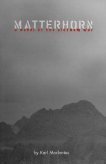Patrick Reinken's Blog: Writing to Write - Posts Tagged "review"
The Two-Sentences-and-One-Word Review of The Unlikely Spy
 The Unlikely Spy by Daniel Silva
The Unlikely Spy by Daniel SilvaMy rating: 5 of 5 stars
With thrillers over the past twenty years becoming more simple and quick and, well, often somewhat ordinary, Daniel Silva's first book The Unlikely Spy (1996) stands out for its drama, action and pacing, finely-drawn characters, and deeply-crafted World War II settings.
I love Gabriel Allon and the later series that features him, but when I'm picking up a Daniel Silva book I've already read, I reach for this one every time.
Marvelous.
View all my reviews
Published on July 24, 2011 17:54
•
Tags:
daniel-silva, review, two-sentences-and-one-word, unlikely-spy
The Two-Sentences-and-One-Word Review of Shutter Island
 Shutter Island by Dennis Lehane
Shutter Island by Dennis LehaneMy rating: 5 of 5 stars
Before I'd read Mystic River, and before I'd circled around after that to read "Until Gwen" and then almost gave up writing because of Lehane's startlingly effective use of second person there (and if you haven't read that short story yet, get to it right now and right here), and long before I ever saw the movie Martin Scorsese made from this book, I read Shutter Island.
I can count on the fingers of one hand the number of times a book fools me, or makes me flip back and check what's come before, or makes me smile till it hurts when I find out that - yup - all the pieces are there in front of me, and the book that's the best among those few is this one, which so thoroughly builds and then just as thoroughly deconstructs not one but two realities.
Masterful.
View all my reviews
Published on July 24, 2011 18:30
•
Tags:
dennis-lehane, martin-scorsese, mystic-river, review, shutter-island, two-sentences-and-one-word, until-gwen
The Two-Sentences-and-One-Word Review of Matterhorn: A Novel of the Vietnam War
 Matterhorn: A Novel of the Vietnam War by Karl Marlantes
Matterhorn: A Novel of the Vietnam War by Karl MarlantesMy rating: 5 of 5 stars
Stories about the Vietnam War invariably seem to fall into (1) an indictment of the war, or (2) an indictment of the war as told through bizarre characters and events (I'm looking at you, Deer Hunter and Apocalypse Now), and they somehow lose the humanity of individuals in either case.
By contrast, Matterhorn spares none of the horrors, questioning of purposes, political underpinnings, and comments on institutional versus non-institutional military service, while also managing the compelling achievement of bringing the wrenching experience of war overall - not just in Vietnam - down to the stories of well-developed and compassionate and relatable men.
Harrowing.
View all my reviews
Published on August 02, 2011 20:08
•
Tags:
apocalypse-now, deer-hunter, karl-marlantes, matterhorn, review, vietnam
Review of Jon Clinch's Kings of the Earth
 Kings of the Earth by Jon Clinch
Kings of the Earth by Jon ClinchMy rating: 5 of 5 stars
In a book, playing with time is a kind of magic trick.
If it’s done poorly, we don’t believe. We see the dove that’s up the sleeve, the different sizes of playing cards in that deck, the fake feet on the woman who’s cut in half. And we don’t blink or wonder or feel amazed.
But if it’s done well – if it’s done in a way that doesn’t reveal the trickery in the trick – then we see a reality that's different from ours. The rabbit materializes from thin air, the man teleports, the lady does vanish. And we do blink and wonder and feel amazed.
In that instance, in that single moment of how’d they do that, we’re not truly focused on how they did that. We’re just reveling in the fact that we’ve seen some event in an entirely different way – from a position where the limitations of our view have constructed a scene not otherwise available to us, and that therefore carries the possibility of both misperception and insight.
Kings of the Earth, by Jon Clinch, is a magic trick.
Superbly written, it tells the story – both singular and collective – of the Proctor brothers, who live their lives in squalor and apparent general contentment on an upstate New York farm. From their background as children raised by a distant and abusive father and an adored mother, all the way through the decades-later death of one brother and the ramifications that flow from that, Kings in its author’s hands unfolds as a series of observations by, vignettes about, and reporting on the characters in these brothers’ lives. A sort of murder mystery and modern tragedy and character/culture study rolled into one, it comes with jumps in time, point of view changes in both character and voice, and chapters that vary from multiple pages down to a single perfect sentence. Throughout all that, it is vivid and encompassing in its creations of story and setting and people.
Some may criticize that approach as adding complexity, of making the book’s telling more difficult. That’s certainly their right. Different people read a given book differently, and they carry their perspectives into it and out of it. We all have our worlds, we all have our viewpoints, and we all have our reads on things.
For me, though, Clinch’s approach is compelling in its additions. That’s because of the point above – we all see and experience and describe things uniquely, and the shifting times and points of view reveal and emphasize one of the book’s key lessons: “I thought it was the strangest thing, how a person can go through this life and not see what you see. How he can stand right next to you and it’s all different.”
Some also may criticize the book in a belief it lacks resolution. That it fails to wrap up and tell “who did it.”
That one’s not accurate.
To be sure, the writing is subtle. Again like a magic trick, it’s folded together precisely and tightly. It’s tucked and fitted over itself, and any seams that exist in the way it’s pulled together are neatly stitched, almost to the point where they’re invisible.
But the “who did it” is resolved. The answer to that question can be found, as the author himself has suggested in a Kings discussion board posting here on Goodreads.
And I’ll argue the resolution isn’t the point, anyway. The point, at least to me, is the depiction of the world of these three brothers, who lived their lives in ways you or I might not understand or choose, but who were satisfied and content with the existence they had.
That’s because it was their world. It was their viewpoint. So it didn’t matter that someone might stand right next to them and see it and judge it all differently.
View all my reviews
Published on November 19, 2011 12:00
•
Tags:
jon-clinch, kings-of-the-earth, proctor-brothers, review



